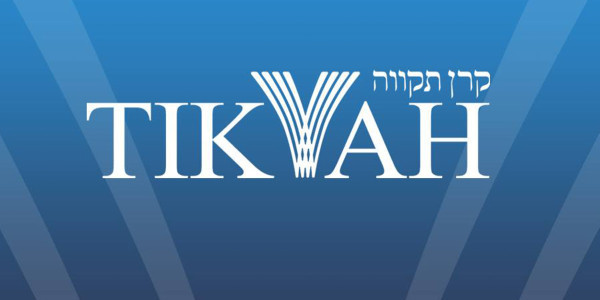What We've Learned From the Most Consequential Year in Modern Jewish History
Jakie cywilizacyjne lekcje muszą wyciągnąć Żydzi z tej wojny i globalnej reakcji na aktywną samoobronę Izraela? W jaki sposób naród żydowski broni swoich interesów, odrzuca samoidentyfikację ofiary i domaga się należnego nam miejsca na świecie?
07/10/2024 | Na stronie od 07/10/2024

Source: TIKVAH
The Fighting Front Lines: What We've Learned From the MostConsequential Year in Modern Jewish History
TIKVAH: Dear Friends,
This has been one of the most consequential years in modern Jewish history, and today marks one year since the Hamas attacks of October 7 changed the Jewish world. As we commemorate the many tragic events of that day—and all that has happened since then—many will focus on mourning the dead, the plight of the hostages, and the rise of anti-Semitism. And that is all important. But this moment also calls for another sort of reflection—a conversation about strength, resilience, the obligation to confront evil, and what both American Jews and Israelis must learn from the last year.
Today, at 12 PM Eastern, we invite you to tune in for just such a conversation with Ruth Wisse, Dara Horn, Liel Leibovitz, Elliot Kaufman, and Jonathan Silver on "The Fighting Front Lines: What We've Learned From the Most Consequential Year in Modern Jewish History."
What civilizational lessons must Jews take from this war and the global reaction to Israel's active self-defense? How do the Jewish people stand tall for our interests, reject the self-identification of victimhood, and claim our rightful place in the world? What responsibility do the Jewish people have to defend American ideals in the face of enemies who hate not only Israel but the animating principles of Western civilization?
The great Jewish writer Milton Himmelfarb once wrote that "Each Jew knows how thoroughly ordinary he is; yet taken together we seem caught up in things great and inexplicable...Big things seem to happen around us and to us."
For good and for ill, never has Himmelfarb's observation been more true than this past year. We invite you to join the Tikvah community as we reflect on all that's happened and how we can rise to meet this moment in Jewish history.
- Ruth Wisse is a preeminent scholar of Jewish literature and ideas. She is a Distinguished Senior Fellow at Tikvah, Professor Emerita of Yiddish and Comparative Literature at Harvard University, and the author of numerous books, including Jews and Power (2007) and Free as a Jew: A Personal Memoir of National Self-Liberation (2021).
- Dara Horn is an award-winning novelist and non-fiction writer. She is the recipient of three National Jewish Book Awards, and her work has been published in the Wall Street Journal, the New York Times, the Atlantic, Tablet, the Jewish Review of Books, and other outlets.
- Liel Leibovitz is Editor-at-Large at Tablet, a Senior Fellow at the Hudson Institute, and a columnist at First Things. He is the author How the Talmud Can Change Your Life: Surprisingly Modern Advice From a Very Old Book (2023).
- Elliot Kaufman is the Editor of the Wall Street Journal's letter page. For nearly three years before that, he edited opinion articles for the Journal. An alumnus of Tikvah's advanced Fellowships, his writing has also appeared in Commentary, National Review, Modern Age, and the Jewish Review of Books.